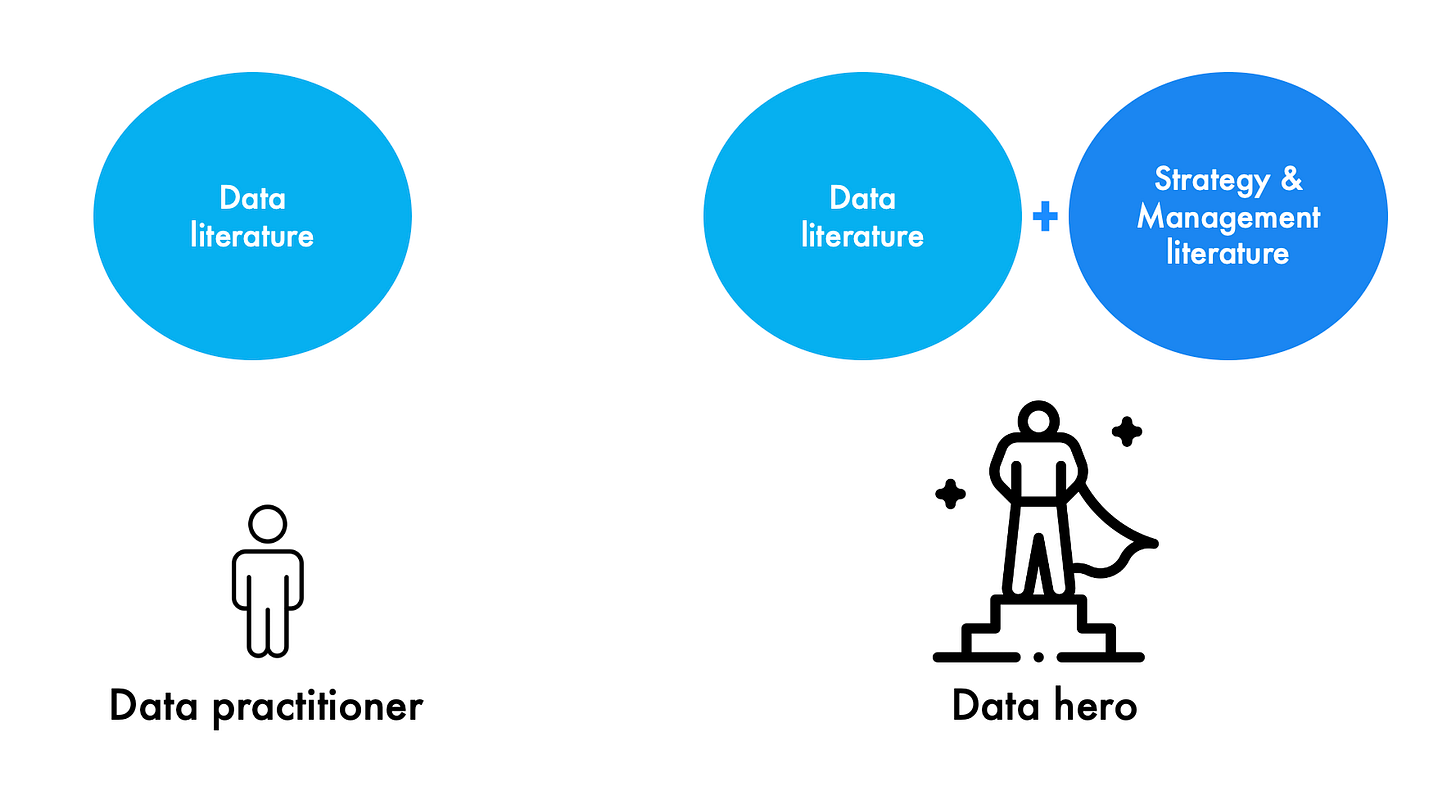#22 - 3 authors to read to become a data hero
And 5 principles of dealing with scaling data platform
This Week’s Strategy
3 must read authors if you want to improve your strategic thinking and be a data hero
Being a data practitioner doesn’t mean you should only read within your domains (i.e. data engineering, data architecture, data products, etc). If you are a frequent reader of Data & Beyond, you’ll notice that for several occasions I’ve linked content from different domains, mostly management and strategy. This is because some principles in other domains are transcendent: they are too powerful to be ignored by people outside of that domain.
I also admit that when searching for literature on data strategy, I am quite disappointed at what I can find from the data community. They are good, but they are not mind-blowing. They are basically frameworks that are helpful in shaping the problem for you, but not great at calling out the essence of the problem. (e.g. Gartner’s DASOM is one of the best I can find from data literature. Very comprehensive, but it doesn’t tell you in essence, what is a data strategy.)
Here is a sentence that I find most useful when talking about strategy, any kind of strategy:
“Strategy is an integrated set of choices uniquely positioning your firm in your industry to create sustainable advantage and superior value relative to the competition.” - Roger Martin
The 4 magic words are “integrated set of choices”. In every domain, you have to make choices in design, development, go to market, etc. The important thing is, your choices should integrate with each others. That is the art of strategising.
So data leaders, besides your beloved O’Reilly textbooks, start reading these 3 iconic strategy thinkers, as they will blow your mind:
Michale E Porter
Peter Drucker
Roger Martin
This Week’s Operations
5 guiding principles to navigate your data platform growing pain (link)
It is easy to set-up a data platform nowadays, in modern data stack era. However, when your data platform starts growing and handles more complex use cases, the pain is unavoidable. Mahdi Karabiben offers 5 guiding principles to cope with this inevitable chaos:
Don’t lose sight of what matters: business values
Automatic enforcement of data standards
Frequently review the data toolset and ask if they need evolving to adapt with current scale
Prioritise your problems
Shift some of the responsibilities left, and right
Overall I think these are great principles to have. However, not every principle can be adopted right away. No #5, for example, can only be followed when you have enough influence within the organisation. This stresses the importance of having friends in the C-suite (i.e. a strong CDO). Nevertheless, have these principles in your war chest, and use them when the time is right.
That’s it for this week! If you enjoy or get puzzled by the content, please leave a comment so we can continue the discussion. Throw in a like as or share as well if you know of someone who may enjoy this newsletter. Thanks!



